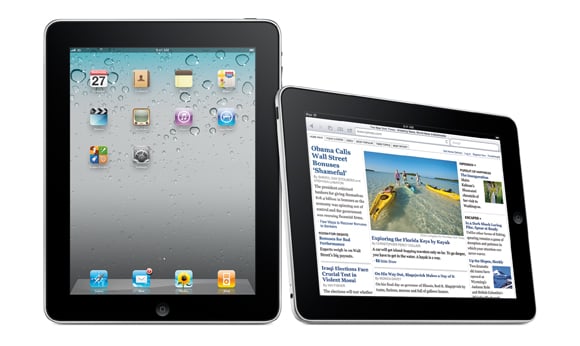As consumers manage more of their lives via smartphones and iPads, financial service companies are trying to ensure they don't get lost in the electronic shuffle.
As consumers manage more of their lives via smartphones and iPads, financial service companies are trying to ensure they don't get lost in the electronic shuffle. "The industry right now is app crazy," says James McGovern, vice-president for consulting services at Corporate Insight, a firm that monitors the ways financial companies communicate with customers.
"We're just going where the customers are," says Christopher Larkin, E*Trade Financial's (ETFC) senior vice-president for active trading. Bank of America's (BAC) online brokerage, Merrill Edge, is even exploring the idea of face-to-face teleconferencing between clients and advisers through the mobile apps it unveiled on Mar. 9, says Alok Prasad, the division's head.
Forrester Research estimates that more than 10 million Americans use mobile banking technology and that the number could rise to 50 million by 2015. Members of Generation X and Y make up about 75 percent of Forrester's current estimate of 10 million. While many of those consumers are comfortable using mobile apps to check their balances, companies need to work themselves more deeply into a mobile customer's financial life or the work that goes into developing all of these mobile apps may wind up being "another cost center," says Gartner (IT) analyst Stessa Cohen.
The "real potential" for mobile personal finance apps may come from linking investments and savings with spending in real time, says Ron Shevlin, senior analyst at the research firm Aite Group. Apps could track consumers' spending and investments while offering "personal finance management" by maintaining budgets and helping consumers "make smart decisions about how to finance a purchase," he says.
Paying With Your Smartphone
To do that, financial outfits have to get in on the front end of spending decisions. Such companies as Bank of America and Wells Fargo have been testing mobile payment systems using smartphones in a small number of cities across the country. Last December, Wells Fargo started a pilot study with 200 employees in San Francisco. After a similar employee study last year, Bank of America on Mar. 28 will launch a mobile payment test with customers in New York, Atlanta, and San Francisco. Just as they would swipe a credit card, shoppers hold phones up to special readers to complete purchases. In addition to offering a convenient way to pay through credit or debit accounts, mobile phones could deliver instant coupons and other promotions to shoppers, says Arah Erickson, head of Wells Fargo's retail mobile banking division.
If closer connections with financial providers make it easier for consumers to see where their money goes, that could be a big positive, says Santa Clara University professor Meir Statman, an expert on behavioral finance and author of the book, What Investors Really Want. Such knowledge "really bolsters their self control" when out shopping, he says. Another outcome could be less positive, though. "People are more likely to trade more if it's made easier," he says. "What we know from studies is the more you trade, the more you are likely to lag behind people who buy and hold investments."
Thus far, 11 percent of investors use their brokerages' mobile offerings and about a quarter of those users trade through mobile platforms, says Forrester. E*Trade says about 3 percent to 4 percent of its trades are placed through mobile devices, and it will soon add trading of futures and mutual funds to its current lineup of stocks and options. TD Ameritrade (AMTD) has seen increased trading activity due to its mobile app, particularly in options trading, says Nicole Sherrod, managing director of TD Ameritrade's trader group. Nevertheless, she adds, the main goal isn't to boost trading immediately but to attract customers and position the firm for future growth. TD Ameritrade will launch its second iPad app in late April, she says, with this one aimed at long-term investors rather than traders.
Forrester analyst Bill Doyle doubts mobile offerings will stimulate much extra trading overall, but he does expect customers to shift holdings to companies with better mobile offerings. "Mobile devices are changing consumer's perceptions of how convenient financial transactions should be," says Wells Fargo's Erickson. "Today, convenience means the PC is across the room, and I don't feel like booting it up."
Bloomberg News--







